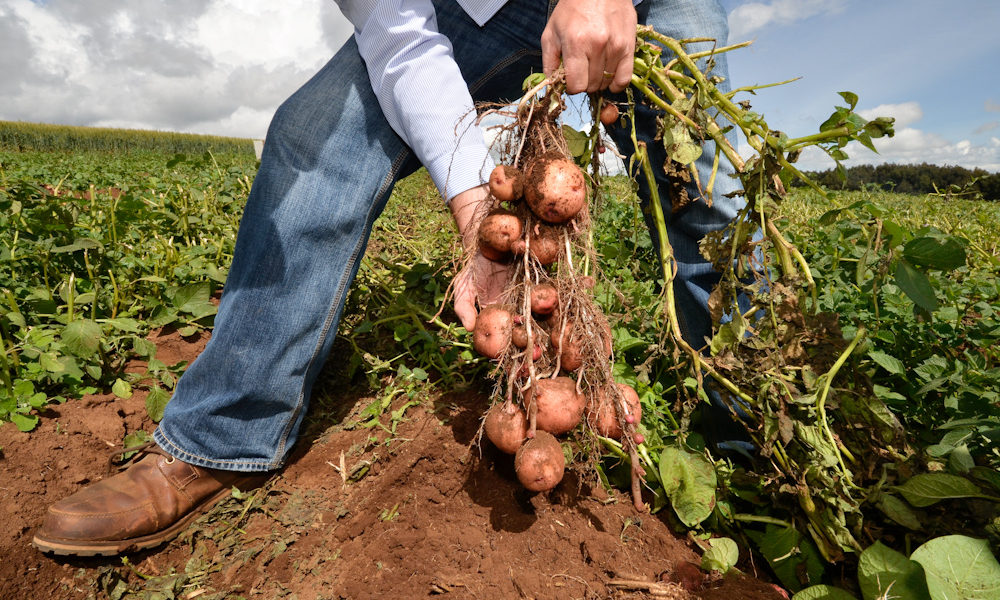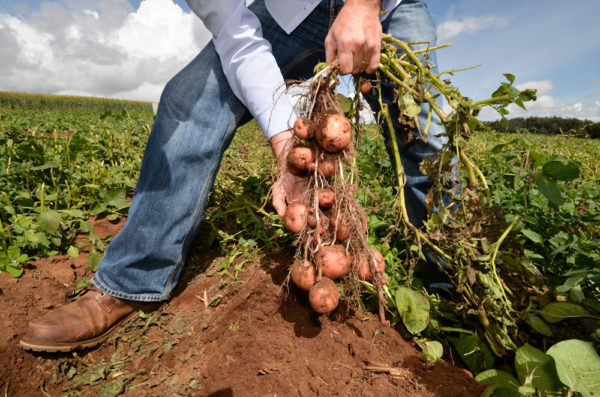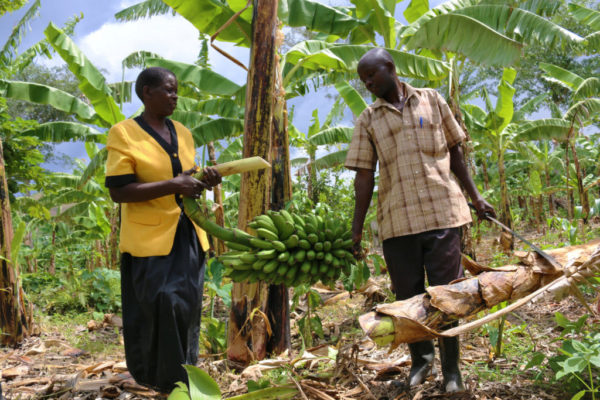Some of the world’s most beloved plants — coffee, bananas, potatoes, and roses, to name a few — could be made even better, but the complexity of their chromosomes either stumps or stifles scientists who study them.
“They’re polyploids, which means instead of having two sets of chromosomes like humans or corn or soybeans or peaches, they have four, six, eight or even more sets,” said Dr. David Byrne, professor of Rosa and Prunus breeding and genetics for Texas A&M AgriLife Research, College Station. “They are among the most important ornamental and food crops, but they are always a challenge when trying to develop better varieties.”
“With a diploid, or species with only two sets, researchers have two choices per gene when introducing a trait to breed a better variety,” he explained. “With a polyploid, if it has four sets of chromosomes, you have four choices per gene, for example. So it’s that much more complicated with multiple sets when trying to interpret what’s going on within the plant.”
Byrne decided to bring together scientists from around the world, including from the CGIAR Research Program on Roots, Tubers and Bananas (RTB), to ponder how to collaborate and compare findings with the hopes of accelerating work on these plants. With a $47,000 grant from the U.S. Department of Agriculture-National Institute of Food and Agriculture, about 40 researchers will convene in San Diego in January 11-12 to begin the work.
“In RTB, we are developing genomic tools to analyse polyploid and highly heterozygous genomes which are typical of our crops (cassava is diploid, but highly heterozygous), in order to assist and enhance breeding programs,” added Dr. Michael Friedmann, Science Office with RTB.
RTB breeding programs target the improvement of root, tuber and banana crops across a range of areas including nutritional content, resistance to pests and diseases, better tolerance to heat and drought, along with traits valued by consumers, such as high dry matter content in sweetpotato and cassava.
“This work is very challenging, and we look forward to collaborating with this initiative. We have much to contribute to each other, as these various crops share similar problems, and the tools developed can be made widely applicable,” said Friedmann.
Byrne went on to explain that advances in DNA sequencing, for instance, can cut through the genetic code of diploid crops in rapid speed, but lag when yielding information and methods of analyzing data on polyploid crops.
Byrne said while researching the topic, he realized various scientists are studying the issues of polyploids on individual species but not working together for overall, common areas that could benefit all of the crops and hasten advances and improvements.
“In general, progress in a breeding program that is working with polyploids is slower than diploids to begin with, and then not having the genomic tools to accelerate the breeding just makes it worse. There may be a study in potatoes and another in chrysanthemums, but they are not working together,” he said. “And we have a lot of the same issues in all these crops. So the concept here is to bring them all together and agree to work together — to try to put our heads together to solve some of the basic problems we have.”
In addition to scientists currently working on polyploid crops, Byrne plans to include affiliated industries interested in the advancement of these crops. He expects a “white paper” produced from the January meeting to clearly identify gaps in techniques and understanding along with providing suggestions on what research is needed to solve these problems.
“Hopefully by the time we are done, we will have a work plan to develop a grant that will enable us to work on improving all the polyploid crops,” Byrne said.
Read the original article and find more information on AgriLife Today website.


